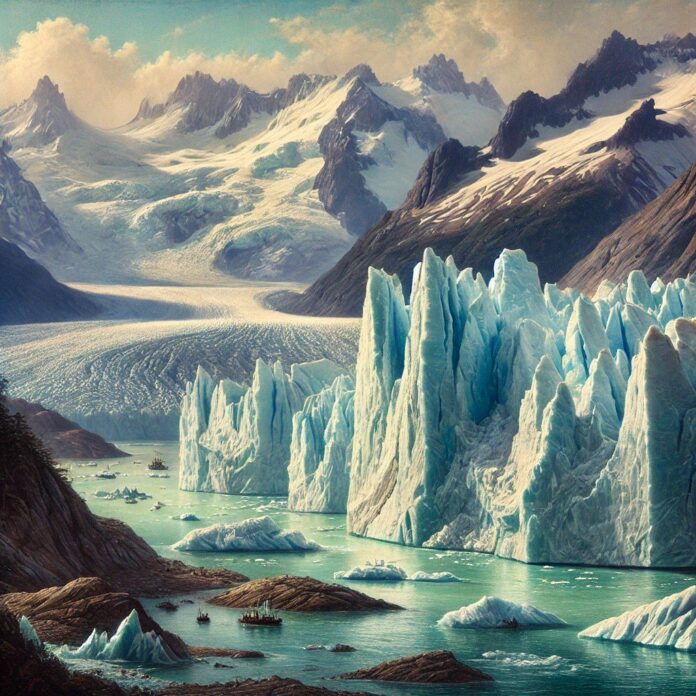Flowing like ice-rivers
through the fabric of time,
a gradual unwinding
concealed within the veil of clouds –
rocky forms linger,
their edges caressed
by dreams of salt,
while celestial streams push
against the limits
of distant dawns.
The atmosphere grows dense,
interlaced with the promise of water
stretched thinly over centuries,
a stormy tapestry bends –
snowy covers rising
to obscure the absence.
The ground hums
its wintry tune,
a caution etched in frosty flames –
the burden of a thousand droplets
might still falter to contain
these frozen foundations.
This piece is influenced by recent research, indicating that increased snowfall could shield glaciers from melting – but only if we act swiftly to reduce greenhouse gas emissions.
Glaciers worldwide are rapidly diminishing, with a projected two-thirds disappearing by the century’s end. This decline is driven by escalating global temperatures, yet the behavior of glaciers in maritime regions remains uncertain. In southern Patagonia, for instance, heightened snowfall since the 1980s has hindered glacier retreat, presenting a unique trend compared to other regions. Nevertheless, the sustainability of this trend amidst continued planetary warming remains uncertain. Understanding how climate variables like precipitation and temperature combine to influence glacier dynamics is crucial for predicting their future and the impacts on sea levels and ecosystems.
To probe this inquiry, researchers simulated the historical progression of three maritime glaciers in southern Patagonia over the past 6,000 years. Utilizing an advanced ice-flow model informed by ancient glaciated information, the study revealed that precipitation primarily drove long-term glacier oscillations, accounting for nearly 70% of their transformations. Looking forward, the outcomes suggest that a substantial rise in rainfall – up to 50% – would be necessary to halt further shrinkage of these glaciers under the most extreme climate scenarios. Sans substantial reductions in greenhouse gas emissions, the glaciers will confront unprecedented conditions where soaring temperatures override any benefits from increased snowfall. Conversely, if emissions are curbed, amplified precipitation could stabilize these glaciers, offering hope for other maritime glaciers worldwide.
Explore more from The Poetry of Science
Sign up to receive the latest posts in your inbox.




